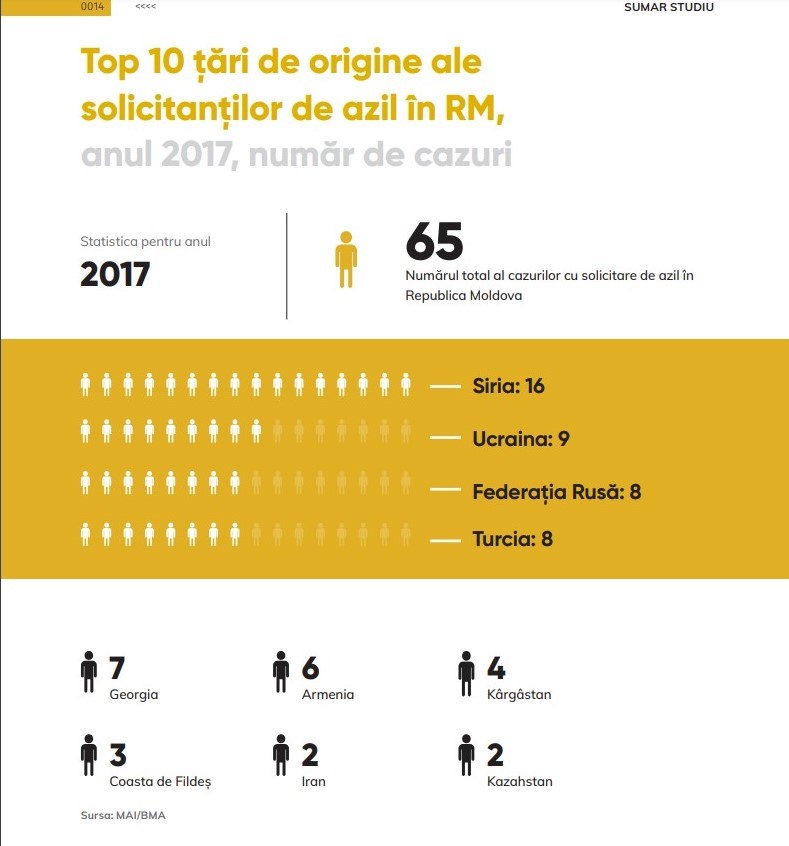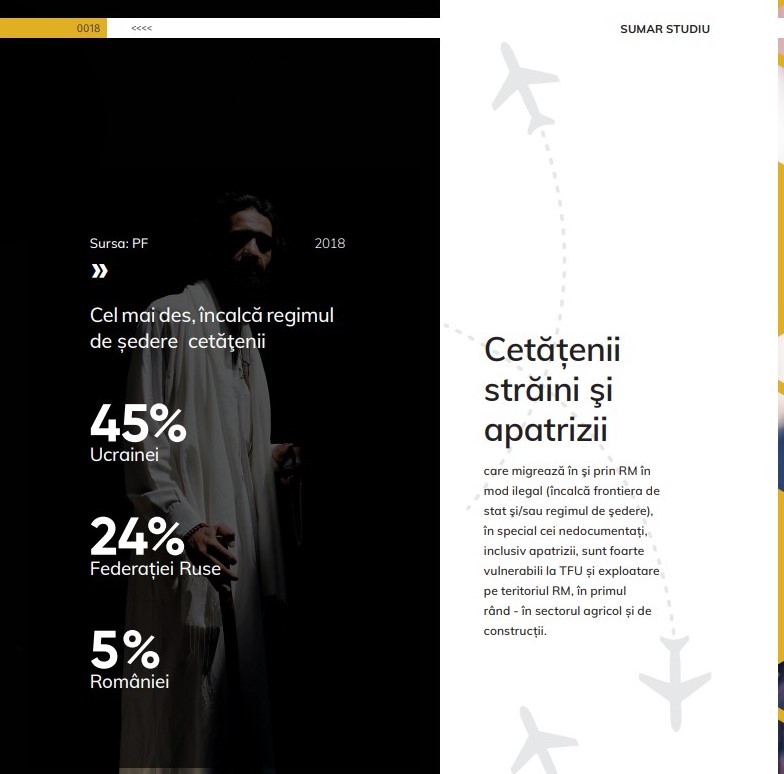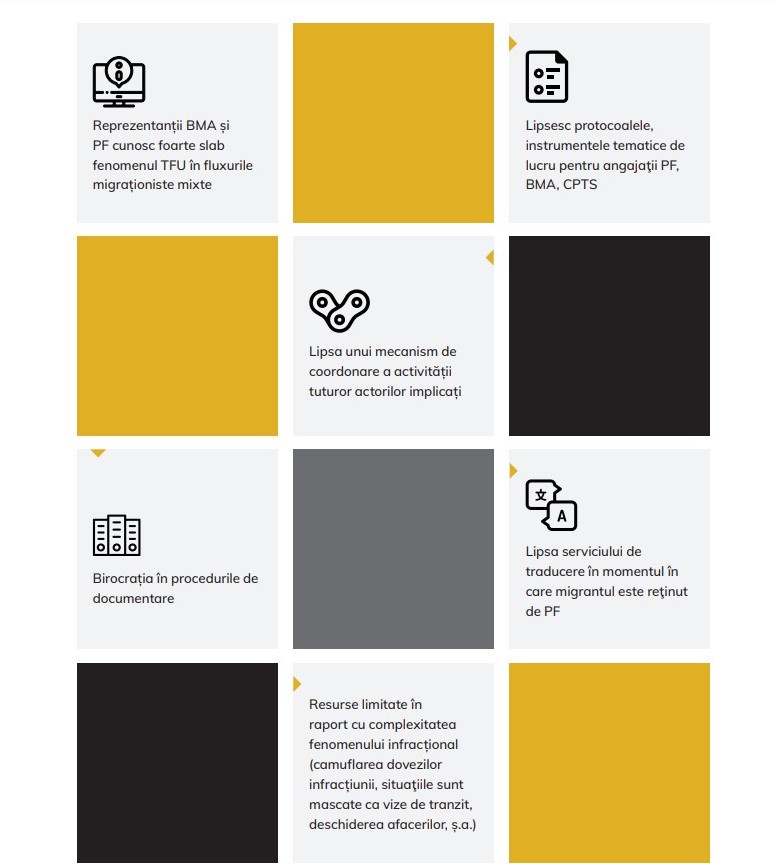The number of victims of labor exploitation among foreign migrants in transit on the territory of the Republic of Moldova is increasing
The labor exploitation of foreign citizens on the territory of the Republic of Moldova was confirmed for the first time in a study prepared by the experts of IC La Strada Moldova.
The authorities are mainly concerned with the prevention, identification, investigation, and assistance of cases of trafficking in human beings (THB) involving the citizens of the Republic of Moldova. Meanwhile, new factors have emerged that make the Republic of Moldova more attractive as a destination and transit country for irregular migration. Thus, citizens of other states are increasingly vulnerable to THB and exploitation in our country, says the study "Migrants’ Vulnerability to Human Trafficking and Exploitation in the Republic of Moldova".
Official data shows that, until now, there have been no massive immigrant influx trends in the Republic of Moldova, but a slight increase is maintained year on year. Simultaneously, the socio-economic instability in the countries of Asia and North Africa and the armed conflicts in Syria and Ukraine have made Moldova a transit point for migration flows to the countries of the European Union. Thus, in 2018 there was an increase of 68.5% in the number of cases of violation of state border, of which three quarters are cases in which immigrants crossed the state border with false documents. Foreign citizens and stateless persons who migrate to and through the Republic of Moldova illegally, especially those who are undocumented, are the most vulnerable to trafficking and labor exploitation, primarily in the agricultural and construction sectors.
On the other hand, according to the study coordinator, Tatiana FOMINA, the massive migration of the citizens of the Republic of Moldova to other countries of the world causes a demographic crisis, manifested by the local lack of labor force. As a result, the economic agents from our country demand a more liberal, stimulating policy, that would attract labor force from abroad. For this reason, the regime of entry and stay in the Republic of Moldova was liberalized in 2018-2019. The change requires a holistic approach that would contribute to integrated border management, safe migration, and counteracting trafficking among lucrative migrants on the territory of the Republic of Moldova.

The study carried out by La Strada Moldova confirms that human trafficking is "a hidden phenomenon" and that official statistics do not reflect it in its entirety. Thus, in the years 2016-2017, law enforcement agencies from the Republic of Moldova do not register any cases of trafficking of foreign citizens on the territory of our country. In the following year, some crimes related to the exploitation of foreign citizens through labour and begging are already observed by law enforcement agencies but are not mentioned in official statistics. The "National Report on the implementation of the 2019 policy for preventing and combating THB ", published in April 2020, officially confirms the trends noted in the study elaborated by La Strada Moldova. The national report data shows that, in 2019, 45 foreign citizens were exploited through labour on the Republic of Moldova territory, in the construction sector.
This study and our other recent researches attest that the Republic of Moldova is not sufficiently prepared for new challenges and trends in the evolution of human trafficking. Moreover, we consider that the regression of the national anti-trafficking system, created in previous years with the support of development partners, is becoming increasingly evident. And the ability of the criminal investigation bodies to investigate trafficking cases decreases significantly, says Tatiana FOMINA.
The study "Migrants’ Vulnerability to Human Trafficking and Exploitation in the Republic of Moldova " was developed with the financial support of the Norwegian Ministry of Foreign Affairs, within the project " Supporting national authorities to advance policy response to trafficking in human beings with full respect to human rights and rights of trafficked persons."

DEFICIENȚE ÎN ACTIVITATEA AUTORITĂȚILOR COMPETENTE:

